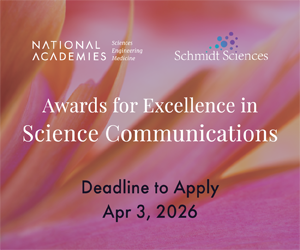By Kelsey Kennedy
CHICAGO — A key to protecting the world's fisheries, according to some experts, may just be tracking seafood from ocean to plate using DNA forensics. Scientists presented methods for tracking and identifying fish to combat overexploitation in a Feb. 14 symposium at the annual American Association for the Advancement of Science meeting in Chicago.
Overexploitation threatens fish populations around the world, and an estimated 25 to 30 percent of catches are illegal, unregulated or unreported. Unauthorized fishing complicates management decisions for officials, and mislabeling of fish products on the markets can confuse consumers. "The two key questions are what are we catching, and what are we eating?" said Gary Carvalho, coordinator of FishPopTrace and professor of molecular ecology at University of Wales.
A common technique known as DNA barcoding allows scientists to determine exactly what we're eating. Scientists look for characteristic markers in specific regions of a DNA sample; the markers vary from species to species. Samples can be extracted from fresh fish filets or even mixed products like frozen fish sticks. DNA is fortunately "very stable in highly processed products," said Carvalho.
Population health is an essential consideration for fisheries management. "You can use genetic diversity to identify populations," said Jann Martinsohn, a fisheries genetics specialist at the European Commission's Joint Research Center in Italy. Identifying which geographic area a fish came from allows managers to keep an eye on genetic diversity in a species, as well as the population numbers.
In order to trace the origin of an individual fish, scientists can examine the frequency of mutations known as single-nucleotide polymorphisms, or SNPs (pronounced "snips"). "Every population that interbreeds will have a particular signature or profile, and have a characteristic distribution of these mutations," said Carvalho. This signature helps scientists pinpoint the population and track the genetic similarity of samples.
Some of these SNPs are known as adaptive markers. "These are markers that actually respond to the local environment," said Carvalho, and are extremely useful for identifying populations. A population of hake in the Atlantic Ocean, for example, will have different adaptive markers from hake found in the Mediterranean Sea.
FishPopTrace is an international consortium of research institutions that have worked to perfect this type of analysis for fish. Researchers collect samples and identify SNPs and the data help determine the population structures of different species, including such routine fare as European hake, Atlantic cod and common sole.
DNA is "two meters of precious information," said Martinsohn, and is a useful tool for fisheries management organizations looking to enforce regulations meant to protect fish populations. These DNA analysis techniques can be expensive, but a survey of 73 management institutions worldwide suggests it is well worth it. "In all the cases we examined, the benefits are bigger than the costs," said Martinsohn.
These techniques give fisheries managers the capacity to collect important data that will allow them to better manage populations and put the brakes on illegal fishing activity and fraud. Overexploitation threatens many populations, and Martinsohn noted, "Basically all of the stocks that have been evaluated are in precarious states."
Putting these tools in the hands of managers in the field is the next step. Improvements in technology will speed up the testing process, and many are hoping a handheld testing device will be developed in the near future to make monitoring easier, faster and cheaper. Carvalho is hopeful and said, "We're not so far from being able to actually get out into the field and do this."
Kelsey Kennedy is a senior at Oregon State University, where she is majoring in economics with a minor in actuarial science. She can be found on Twitter @kelseyrkennedy or her website, kelseyrkennedy.com.


